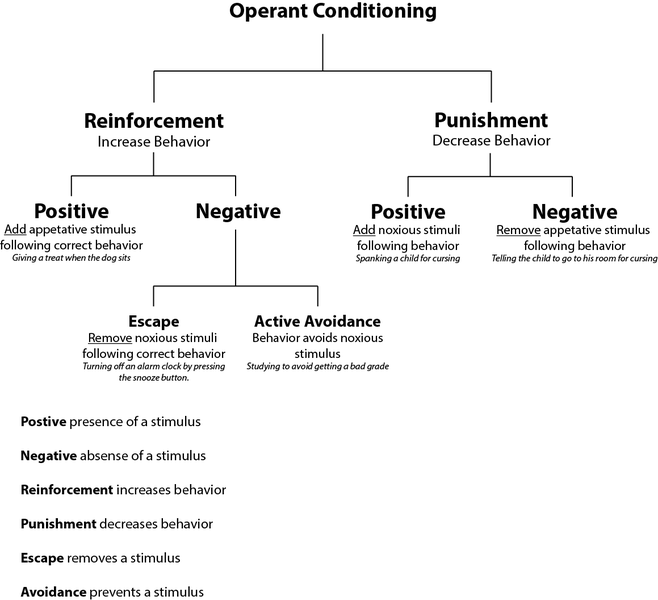The importance of reinforcements and punishments in influencing behaviour is emphasized in behavioural theories of abnormality. The main concepts related to behavioural theories and behaviourism include classical conditioning, operant conditioning, modelling, and observational learning.

Image credit: Studentne
Classical conditioning, coined by Ivan Pavlov, occurs when an unconditioned stimulus (food) necessitates a natural response (salivating) and then a neutral stimulus (bell ringing) creates the same response (salivating) due to the stimulus' association with the response. Operant conditioning, on the other hand, involves rewards and punishments for behaviour. Good behaviour is rewarded, which will elicit the individual to continue engaging in that behaviour, while bad behaviour is punished, leading to a cessation in that behaviour, observations defined as Thorndike's law of effect.
In relation to abnormality, classical conditioning and operant conditioning can work together to lead to mental illness. For example, if an individual experiences a very embarrassing situation while dining in a restaurant, they may have feelings of embarrassment and anxiety when going into restaurants in the future. To combat this, the person may then avoid going to restaurants, which acts as a reward (operant conditioning) and maintains their fear of restaurants, which could develop into a phobia if no intervention is done.
Modelling and observational learning are more behavioural theories of abnormality which involve individuals learning behaviour by copying what others do and learning from other peoples' experiences. For instance, if a person sees someone get punished over not eating vegetables, that person is likely to avoid punishment by eating vegetables.
One major benefit to behavioural theories of abnormality is that they can be studied very intensely, with controlled experiments and results that can stand up to scientific testing. Therefore, results from these studies hold important merit in the study of abnormality. Treatments can be very effective for resolving problem behaviours; however, alone they don't treat the underlying cause of the behaviour.
© BrainMass Inc. brainmass.com June 30, 2024, 6:40 am ad1c9bdddf